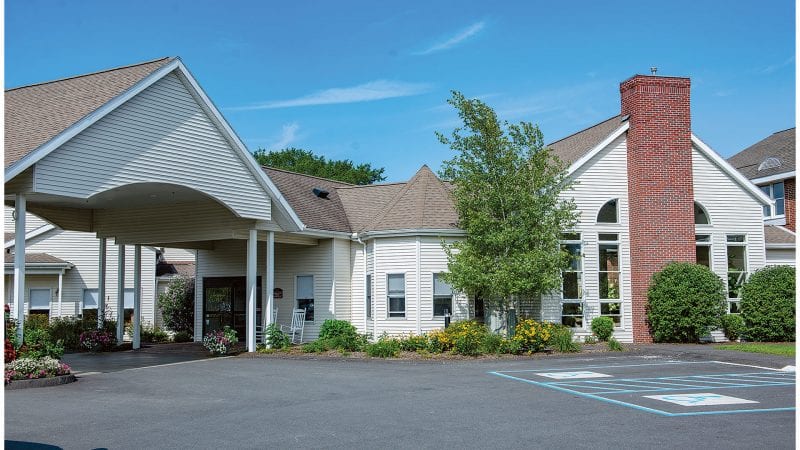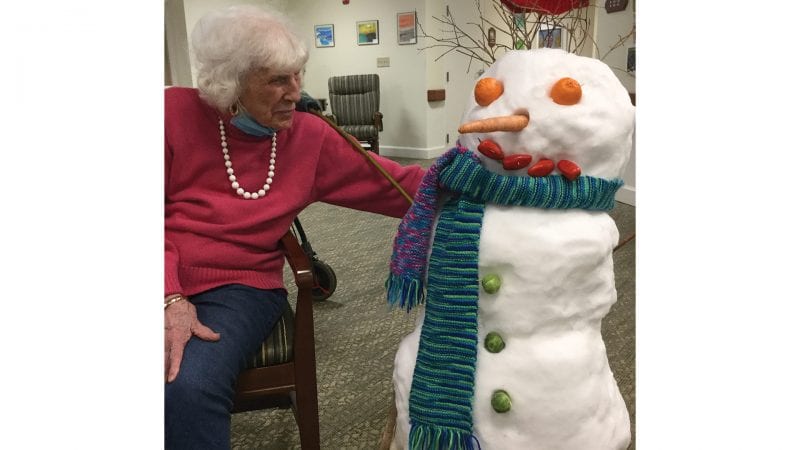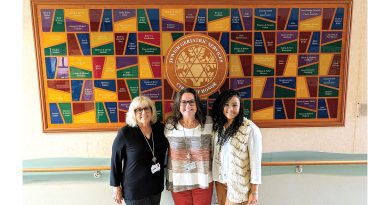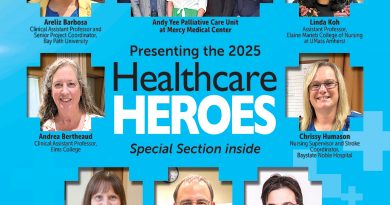Kimball Farms Promotes Dignity, Life Enrichment in Memory Care
Peace of Mind
By Mark Morris

Between now and 2030, 10,000 Americans each day, on average, will reach age 65. That type of growth affects all the industries that serve the senior population — and, not surprisingly, senior living is one industry paying close attention to this trend.
Kimball Farms Life Care provides independent and assisted living as well as dedicated memory-care services. In 2020, the Lenox facility received more inquiries about its residential offering than in any year prior. Heidi Cornwell, marketing and sales director for Kimball Farms, said potential residents are doing more online research to educate themselves about senior community living.
“Many people are ‘shopping around’ earlier because they saw their own parents ill-prepared for this part of their life journey,” Cornwell said. She also noted that, as people live longer, they are moving into senior communities at a later age.
As a continuing-care retirement community (CCRC), Kimball Farms offers increasing levels of care for those who need it. Residents can easily move from independent living to assisted living, giving the individual and their families greater peace of mind.
“We celebrate the good days, bolster self-esteem, and we treat them with the utmost dignity and respect.”
For residents who develop dementia or Alzheimer’s disease, Kimball Farms offers memory-care services through its Life Enrichment Program (LEP). Cornwell explained that the program is centered around a philosophy know as habilitation, which increasingly emphasizes a person’s remaining skills instead of the skills they have lost.
For example, if a sandwich is placed in front of a person with dementia, they may not be able to process what to do with it. “However, if someone sits across from them with a sandwich, picks it up, and takes a bite, that is the only queuing they need to understand what to do,” Cornwell said, adding that they can then enjoy their lunch without any further assistance.
Singing is another good example of emphasizing a remaining skill. “The individual may not sing along to a song by themselves, but if an activities person or nurse sings with them, they can sing with pride and remember every word.”
The LEP puts its focus on maximizing quality of life for each resident. Regular routines and programs built around the interests of the individual keep them busy all day and into the evening. As a result, the residents thrive, Cornwell said, noting that the stimulation helps residents with dementia maintain the abilities they still have for as long as possible.

“We place no expectations on them, but encourage them to be the best person they can be,” she said. “We celebrate the good days, bolster self-esteem, and we treat them with the utmost dignity and respect.”
Safe Spaces
As research on dementia has evolved, caregivers have increased their understanding on how to manage the condition. Embracing the skills that remain for those with dementia can encourage feelings of acceptance and personal success. That’s important, Cornwell said, because, even though the disease can have an effect on a person’s ability to communicate or recall recent events, they still have a sense of the quality of life they desire.
Or, as she put it, “although they may no longer be able to dance, they still enjoy the music.”
Kimball Farms social worker Jackie Trippico leads what is known as Reminisce Group. This weekly activity begins with staff presenting a specific topic and asking residents to recall a significant memory related to that theme. Cornwell said one popular reminiscence involved talking about a trip to an ice-cream parlor.

Providing comfortable spaces is also part of the program. Kimball Farms’ memory-care neighborhood is a secure, self-contained community. Private apartments are modeled after a typical home with an open floor plan, while residents also have access to a secure outdoor courtyard so they can garden, see visitors, or take part in other activities. The staff ratio is higher than traditional assisted living, and they have all been trained in specialized dementia care.
When COVID-19 hit last year, families could no longer make in-person visits to residents in LEP. Cornwell said the activities professionals and nursing team quickly adapted to using tablets to arrange virtual visits or phone calls so families could stay informed on the care and well-being of their loved ones. Celebrating special occasions simply became virtual events.
“Zoom birthday and anniversary parties, as well as Skype holiday festivities, became our new normal,” she explained.
As COVID vaccine levels rise, Kimball Farms is able to welcome families to visit by appointment. Cornwell reported that residents and their families have been thrilled to resume the personal visits.
“We are so grateful to our residents and their families because they worked with us to find creative and innovative ways to stay engaged and informed, while at the same time keeping everyone healthy.”
“We are so grateful to our residents and their families because they worked with us to find creative and innovative ways to stay engaged and informed, while at the same time keeping everyone healthy.”
As more Americans reach their senior years and live longer than previous generations, the demand for memory-care facilities to treat dementia and Alzheimer’s disease will continue to increase.
According to Seniors Housing Business magazine, from 2013 through 2018 (the latest figures available), the number of new memory-care units increased by 55%.
Cornwell advises those who are looking at senior-living options to consider the continuum of care a community offers. Healthy seniors who may choose independent living in senior housing to downsize from their homes need to think about future needs as well, she said.
“The community they choose should be a place that will provide them with the best quality of life, for the rest of their life, with increasing levels of care when and if they need it.”



